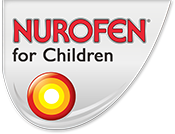Escape the Stress: Tips to Clear Away Headaches

Headaches can be just one of the many physical symptoms of stress. However, when we think of headaches, we often think of adults – because we only know of adults suffering them. But many young children get headaches, too, often as a result of stress.
Both tension type headaches and migraines can be caused by stress.[1] However, most people suffer tension type headaches (TTH). This type of headache is believed to be associated with straining of the muscles in your neck, head and shoulders.
Strained muscles are further amenable to prostaglandins, which are secreted at the site of the strain. Prostaglandins stimulate the behavior of pain receptors, causing you to feel the headache. The pain alerts us to act quickly to do something to try to stop it.
Why do young children suffer headaches?
There is normally nothing to worry about when a child suffers a headache, unless it is a chronic condition brought on by an underlying medical condition. If the headache comes on and off, it is important to know what triggers it. Normally, extreme stress in older children (related to tests and exams, for instance) can cause stress headaches.
In moments of extreme stress, the levels of the ‘stress hormone’ adrenalin can increase and in response your heart rate and blood pressure can increase too.[2]
Adrenalin lowers the level of ‘relaxation chemicals’, or endorphins, in your body. This results in your pain threshold being lowered in turn, and increased muscle tension. All of these factors lead to a strain in the neck, head and shoulder muscles, which can in turn trigger a tension type headache.
What precautions can be taken to avoid stress headaches?
First off, it is important to identify the trigger for the headache, and then isolate it. Apart from nervousness or stress, certain allergies, foods or smells/fragrances can trigger a headache in your child. Keep a close watch on when your child complains of a headache, and the events leading up to it. You can then zone in on the trigger and eliminate it.
Another strategy you can adopt to help avoid stress headaches, is to help your child manage their stress better. Try these techniques:
- Sleeping early. Aim for a regular bedtime routine. At least seven hours of sleep will help your child relax and wake up fresher in the morning. Keep the child’s sleeping area as noise-free as possible.
- Regular play. Send your child out to play every day, or encourage them to go for a run with you. Exercise lowers stress hormones and releases endorphins in the bloodstream, thus heightening the mood.[3]
- Healthy diet. Hunger can trigger headaches, so start your child’s day with a healthy breakfast. Ensure your child has home cooked meals packed in their bag, so that they won’t consume fatty junk food at school.
- Correct their posture. Your child’s neck and shoulders may tense up following long hours of staring at the laptop or mobile phone. Encourage them to keep their shoulders relaxed and maintain a good posture.
Taking regular breaks from study and spending time relaxing, such as with siblings and friends, can also be helpful ways to reduce stress.
What can you do to alleviate headaches?
Sometimes, during stressful periods, tension type headaches may creep up on your child. There are several measure you can take. These include having a long soak in a hot bath or a head and neck massage. Get them to relax by going for a walk, or taking a short nap or simply talking to you about their day.
Relieving tension type headaches with Nurofen
In addition to the tips given above, you could also consider giving your child a painkiller like Nurofen. This is an over the counter painkiller that contains ibuprofen as its main active ingredient.
- Ibuprofen has been scientifically established to act by inhibiting the formation of prostaglandins that can be produced when you are suffering from a stress-related tension type headache.
- Ibuprofen targets the source of the pain, helping to relieve a tension type headache.
Nurofen is designed for consumption by children. Do take your pediatrician’s advice before giving it to your child. Be alert for severe headaches arising after a head injury, if it becomes severe, or with accompanying visual problems, fever, nausea or slurred speech. Seek immediate medical assistance in this case.
[1] http://www.migrainetrust.org/factsheet-tension-type-headache-10884
[2] http://www.betterhealth.vic.gov.au/bhcv2/bhcarticles.nsf/pages/Headache_and_stress?open
[3] http://www.webmd.com/migraines-headaches/features/prevent-stress-headaches
